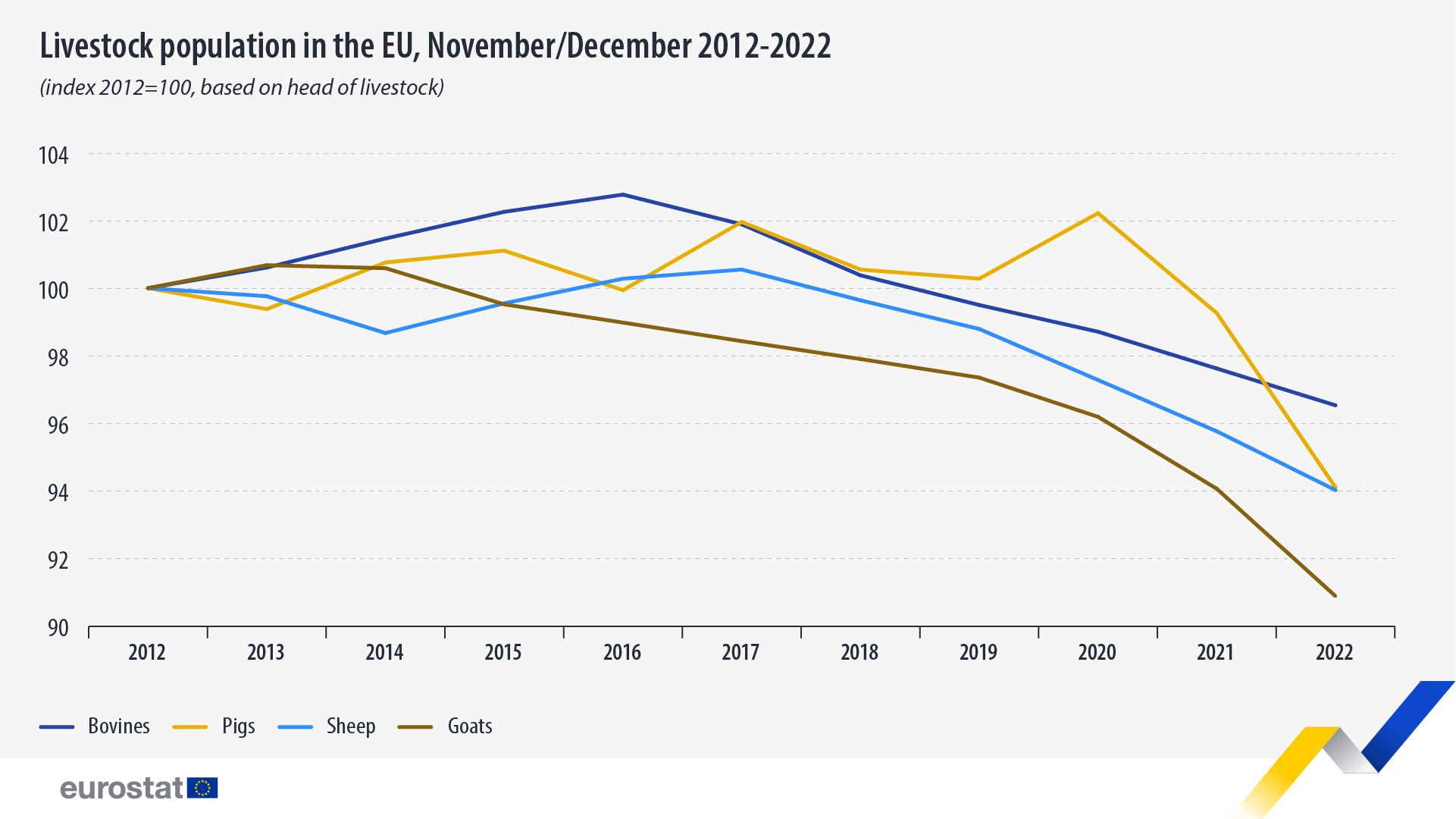Decline in sheep and goat farming in the EU calls for more ambitious policy for the sector
The production of goats and sheep is forecast to fall by 9% and 7% respectively in the second semester of 2024, according to Eurostat, the EU’s statistical office. Sheep and goat farming is expected to experience the largest decline compared to, for example, cattle and pig farming (-1%).
These projections confirm the worrying decline in sheep and goat farming in the EU over recent decades. Over the period 2012-2022, the goat population has experienced the largest decrease (-9 index points in 2022 compared to 2012, according to Eurostat).

A landmark sector in the mountains
Sheep and goat farming is widespread in less-favoured areas, particularly in the mountains. Mountain areas produce a large proportion of sheep and goat products (34% of milk and 25% of meat – 2013 figures). Greece, Spain, Romania, France, Italy and Croatia are particularly oriented towards this type of farming.
Euromontana shares the concern about these new unfavourable projections, in the context of an ageing farming population, a lack of attractiveness of agriculture and livestock farming for young people, and at a time when mountain areas are among the most threatened by land abandonment.
Half of the EU’s sheep and goats are reared in pastoral systems, which contribute to providing high quality products, preserving both environmental and cultural ecosystem services and maintaining the socio-economic cohesion of territories. While the EU is not self-sufficient in sheep and goat products, the sector suffers from a lack of training opportunities, as well as low remuneration for livestock farmers and insufficient policy support.
For a European Plan for Pastoralism
Euromontana advocates greater support for the sector through the Common Agriculture Policy and promotion policy.
However, the challenges facing the mountain sector call for a more ambitious and coordinated policy response, addressing the promotion of professions, the remuneration of farmers, the recognition of extensive practices and the improvement of training and working conditions in mountain areas.
Euromontana therefore urges the new European Commission, which will take office in the autumn, to take up the issue and to develop a vision for the future of livestock farming in the European Union. In particular, as 2026 celebrates the International Year of Rangelands and Pastoralists, Euromontana calls on the European Commission to present a coherent strategy through a European Plan for Pastoralism.